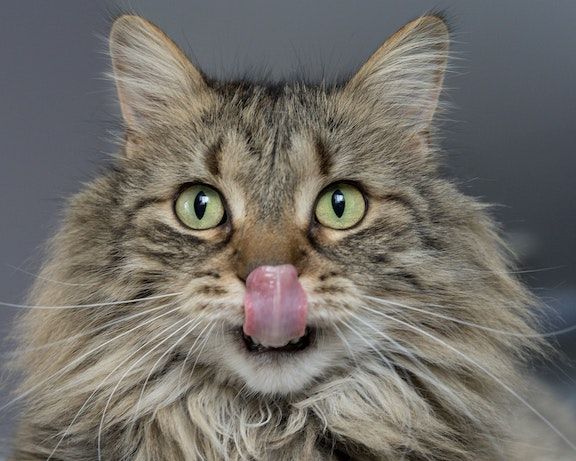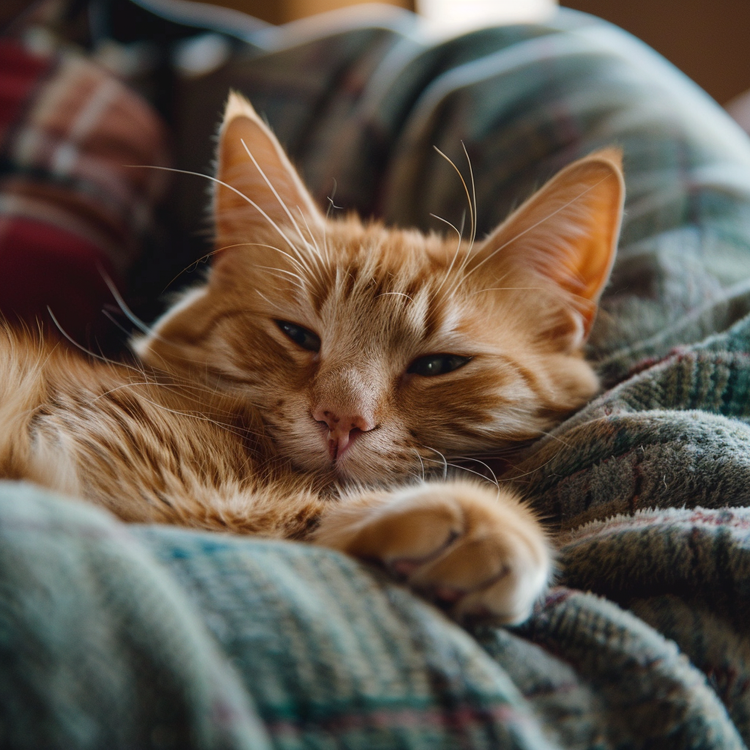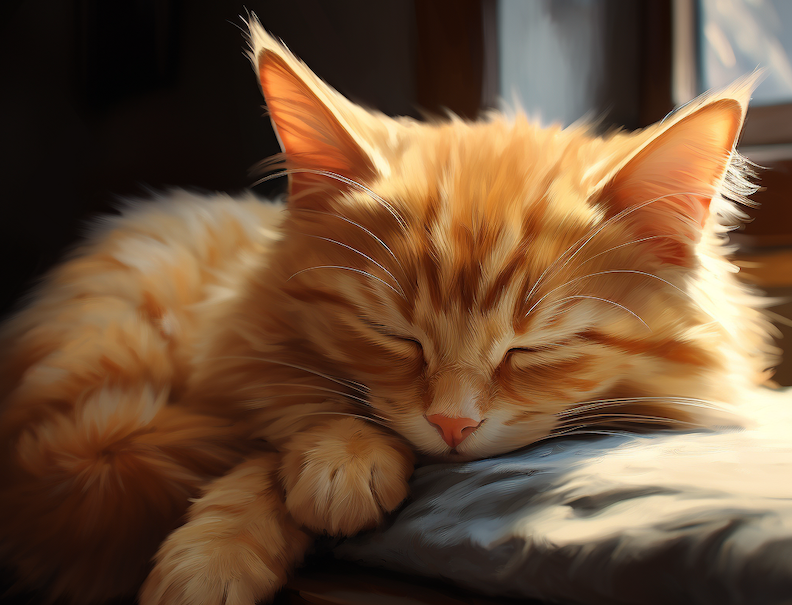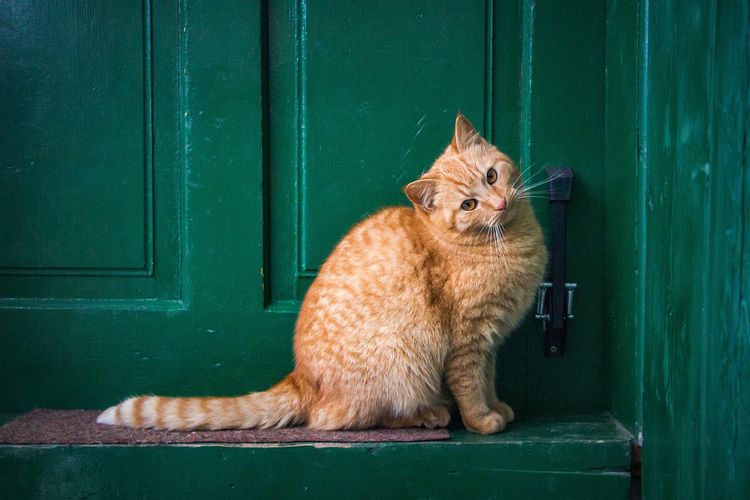Understanding the Significance of Your Cat's Tongue Out: More Than Just a Cute Pose

Why Do Cats Stick Their Tongues Out?
Have you ever caught your furry friend sitting with its tongue out and wondered why? You're not alone! Cats sticking their tongues out, or "blepping" as the internet lovingly calls it, is a sight that has left many cat owners puzzled and intrigued.
Why It's Important to Know Your Cat's Habits
Understanding your cat’s habits is crucial for ensuring their well-being. By deciphering their behavior, you can gain insights into their health, comfort, and emotional state. This knowledge is vital for fostering a strong bond with your pet and providing them with the best care possible.
Stay tuned as we delve deep into the world of cat tongues and discover what your feline friend might be trying to tell you when they stick their tongue out!

What's Special About a Cat’s Tongue?
Delving into the world of cats, one can’t help but marvel at their agility, independence, and of course, their unique tongues. Feline tongues are much more than mere tools for savoring food. They're complex structures that play a crucial role in various aspects of a cat's life, making them stand out in the animal kingdom.
The Basics of Cat Tongue Structure
A cat's tongue is a masterpiece of nature, optimized for survival and well-being. Let's explore its fascinating structure:
Papillae: What Are They?
Cats have tiny, hook-like structures on their tongues called papillae. These keratinized projections are invaluable, aiding in grooming by removing loose fur and dirt. They’re also crucial for feeding, helping cats strip the meat from the bones of their prey.
Muscles in the Tongue
Beneath the surface, a cat's tongue is a muscular organ, allowing for a wide range of movements. These dynamic muscles enable cats to manipulate their food, lap up water efficiently, and maintain their cleanliness.
How Big is a Cat’s Tongue?
A cat’s tongue is proportionally sized to its body, varying among different breeds. But regardless of size, every cat's tongue shares the same intricate design and functionality.

What Does a Cat’s Tongue Do?
The feline tongue is a versatile organ with multiple functions, crucial for a cat’s survival and daily life:
Grooming Secrets
The rough texture of a cat's tongue, thanks to the papillae, makes it an excellent tool for grooming. Cats spend a significant amount of time grooming themselves, ensuring they stay clean and reduce scent markers for predators.
How Cats Eat
The cat's tongue is instrumental in feeding. The hook-like papillae help them grasp and tear meat, showcasing their carnivorous nature. This adaptability is a testament to their survival skills in the wild.
How Cats Drink
Cats have a unique drinking mechanism. They use their tongue to flick water into their mouths, creating a column of liquid that they quickly close their jaws around. It's a delicate balance of gravity and timing!

Why Cats Really Stick Their Tongues Out
Cat owners and enthusiasts alike have often marveled at the quirky sight of cats sticking their tongues out. This peculiar feline behavior, rich in nuance and variability, begs exploration. From adorable bleps to signs of relaxation or potential health issues, let’s uncover the reasons behind cats showcasing their unique tongues.
Understanding Blepping
What is Blepping?
"Blepping" is the charming term used by the online community to describe instances when a cat sticks out a tiny portion of its tongue, often appearing both adorable and amusing. This phenomenon has given rise to countless internet memes and photos, celebrating the cute quirkiness of cats.
Why Do Cats Blep?
Cats blep for a variety of reasons, one of the simplest being relaxation. When a cat is content and at ease, it might forget to retract its tongue fully, resulting in an endearing blep. However, frequent or prolonged blepping can be a signal to look closer at your cat's health and well-being.

The Grooming Connection
Cats are meticulous groomers, and their tongues play a pivotal role in this process. Sometimes, while grooming, a cat may leave its tongue out momentarily, especially if something distracts it. This brief pause in grooming can result in the tongue making a surprise appearance.
When Cats Get Hot: Overheating and Panting
Just like dogs, cats can also pant when they are overheated. During panting, a cat may stick its tongue out to increase evaporative cooling. While this behavior is less common in cats compared to dogs, it’s essential for owners to ensure their cats stay cool and hydrated, especially in hot weather.
Dental Problems to Watch Out For
A cat sticking its tongue out persistently could be indicative of dental issues or oral discomfort. Problems such as gingivitis, tooth decay, or oral injuries can cause a cat to stick out its tongue, signaling a need for a veterinary check-up.
Is Your Cat Just Relaxing?
Sometimes, a cat might just be in deep relaxation and unconsciously leave its tongue out. This behavior is typically harmless and is a sign that your cat feels safe and comfortable in its environment.
Health Issues That Cause Tongue Sticking
Brain Issues
Neurological problems can sometimes cause a cat to stick out its tongue. If you notice any additional signs of distress, disorientation, or abnormal behavior, it’s crucial to seek veterinary advice promptly.
Breathing Problems
Cats experiencing respiratory distress might stick their tongues out as they try to breathe more effectively. Respiratory issues can be serious and warrant immediate veterinary attention.

Decoding Your Cat’s Tongue Behavior
Cat lovers and owners know that every feline behavior, no matter how quirky, tells a story. When your cat sticks its tongue out, it’s like a puzzle waiting to be solved. But worry not! By closely observing other behaviors, considering the context, and monitoring the frequency and duration, you can decode what your cat might be signaling.
Observing Other Behaviors
A cat’s tongue peeking out can be adorable, but it’s vital to observe accompanying behaviors. Is your cat pawing at its mouth, drooling excessively, or showing signs of distress? These additional clues can help you understand whether the behavior is a cute quirk or a sign of something more serious.
Context is Key: Where and When
Understanding where and when your cat displays this behavior is crucial in decoding its meaning. Does it occur predominantly during relaxation, grooming, or hotter weather? Pinpointing the context can help you discern whether it’s a mere habit, a way to cool down, or possibly a health-related issue.
Frequency and Duration: When to Be Concerned
While occasional tongue-out moments can be harmless and amusing, it’s the frequency and duration that can indicate underlying issues. If your cat consistently sticks its tongue out or does so for extended periods, it might be time to observe more closely and consider a vet visit.
Spotting Signs of Health Issues
Cats are experts at hiding discomfort, making it crucial for owners to spot subtle signs of health issues. If the tongue-out behavior is accompanied by changes in eating, grooming habits, or demeanor, it might signal dental problems, respiratory issues, or neurological disorders. In such cases, timely veterinary consultation is essential to address any potential health concerns.

Responding to Your Cat’s Behavior
Cats are creatures of habit, but when they display peculiar behaviors like sticking their tongues out, it's essential for owners to know how to respond. Discerning when to observe more closely and when a vet visit is necessary can make all the difference in ensuring your cat’s well-being.
When to Observe More Closely
Occasional tongue-out moments are typically harmless, but if this behavior becomes frequent or prolonged, it’s time to observe your cat more closely. Monitor for any accompanying signs of distress, changes in eating or grooming habits, and alterations in demeanor, as these could indicate underlying issues.
When a Vet Visit is Necessary
If close observation reveals persistent unusual behavior or signs of discomfort, a vet visit is necessary. Early detection and timely veterinary intervention can address potential health problems, ensuring your furry friend remains happy and healthy.
Final Thoughts:
In embracing our cats' unique habits, we've uncovered fascinating insights into their tongue behaviors, from the structural marvels to the reasons behind the adorable blep. Understanding and valuing these quirks not only deepen our bonds but also ensure the well-being of our beloved feline companions. Here's to celebrating every purr, paw, and protruding tongue!
FAQs
Is it normal for cats to stick their tongue out occasionally?
Yes, occasional tongue-out behavior is generally considered normal, especially during or after grooming.
When should I worry if my cat's tongue is always out?
If this behavior is persistent and is accompanied by other symptoms like drooling or coughing, consult your vet immediately.
Can a cat sticking its tongue out be a sign of stress?
It's possible, especially if accompanied by over-grooming.
Are there breeds more prone to sticking their tongue out?
There's no concrete evidence that certain breeds do this more than others.
Can I train my cat to stop sticking its tongue out?
You shouldn't try to train this behavior out of your cat without first consulting a vet, as it could be indicative of a health issue.


